第25章
Among the Australian tribes it was a common practice to knock out one or more of a boy's front teeth at those ceremonies of initiation to which every male member had to submit before he could enjoy the rights and privileges of a full-grown man. The reason of the practice is obscure; all that concerns us here is the belief that a sympathetic relation continued to exist between the lad and his teeth after the latter had been extracted from his gums. Thus among some of the tribes about the river Darling, in New South Wales, the extracted tooth was placed under the bark of a tree near a river or water-hole; if the bark grew over the tooth, or if the tooth fell into the water, all was well; but if it were exposed and the ants ran over it, the natives believed that the boy would suffer from a disease of the mouth. Among the Murring and other tribes of New South Wales the extracted tooth was at first taken care of by an old man, and then passed from one headman to another, until it had gone all round the community, when it came back to the lad's father, and finally to the lad himself. But however it was thus conveyed from hand to hand, it might on no account be placed in a bag containing magical substances, for to do so would, they believed, put the owner of the tooth in great danger. The late Dr. Howitt once acted as custodian of the teeth which had been extracted from some novices at a ceremony of initiation, and the old men earnestly besought him not to carry them in a bag in which they knew that he had some quartz crystals. They declared that if he did so the magic of the crystals would pass into the teeth, and so injure the boys.
Nearly a year after Dr. Howitt's return from the ceremony he was visited by one of the principal men of the Murring tribe, who had travelled some two hundred and fifty miles from his home to fetch back the teeth. This man explained that he had been sent for them because one of the boys had fallen into ill health, and it was believed that the teeth had received some injury which had affected him. He was assured that the teeth had been kept in a box apart from any substances, like quartz crystals, which could influence them; and he returned home bearing the teeth with him carefully wrapt up and concealed.
The Basutos are careful to conceal their extracted teeth, lest these should fall into the hands of certain mythical beings who haunt graves, and who could harm the owner of the tooth by working magic on it. In Sussex some fifty years ago a maid-servant remonstrated strongly against the throwing away of children's cast teeth, affirming that should they be found and gnawed by any animal, the child's new tooth would be, for all the world, like the teeth of the animal that had bitten the old one. In proof of this she named old Master Simmons, who had a very large pig's tooth in his upper jaw, a personal defect that he always averred was caused by his mother, who threw away one of his cast teeth by accident into the hog's trough. A similar belief has led to practices intended, on the principles of homoeopathic magic, to replace old teeth by new and better ones. Thus in many parts of the world it is customary to put extracted teeth in some place where they will be found by a mouse or a rat, in the hope that, through the sympathy which continues to subsist between them and their former owner, his other teeth may acquire the same firmness and excellence as the teeth of these rodents. For example, in Germany it is said to be an almost universal maxim among the people that when you have had a tooth taken out you should insert it in a mouse's hole. To do so with a child's milk-tooth which has fallen out will prevent the child from having toothache. Or you should go behind the stove and throw your tooth backwards over your head, saying Mouse, give me your iron tooth; I will give you my bone tooth. After that your other teeth will remain good. Far away from Europe, at Raratonga, in the Pacific, when a child's tooth was extracted, the following prayer used to be recited:
Big rat! little rat!
Here is my old tooth.
Pray give me a new one.
Then the tooth was thrown on the thatch of the house, because rats make their nests in the decayed thatch. The reason assigned for invoking the rats on these occasions was that rats' teeth were the strongest known to the natives.